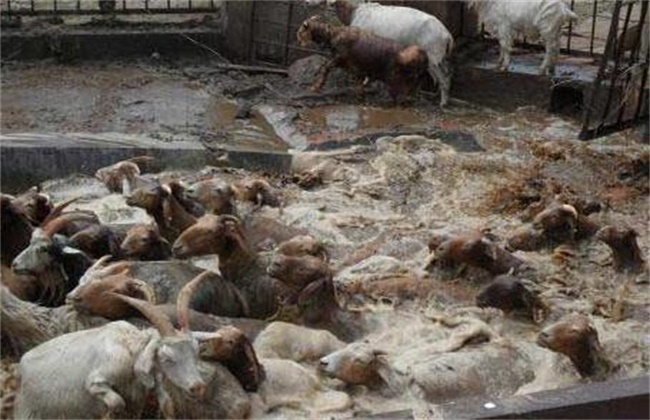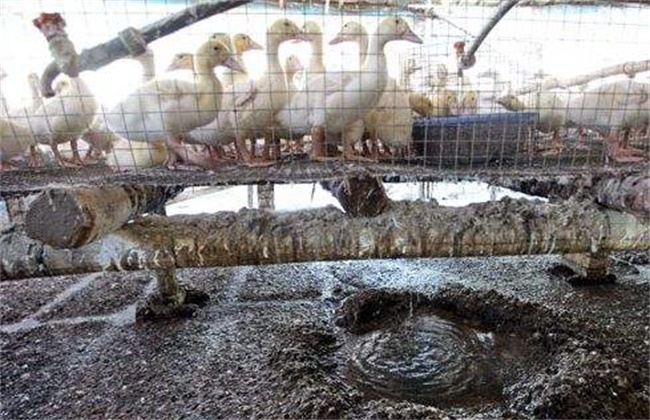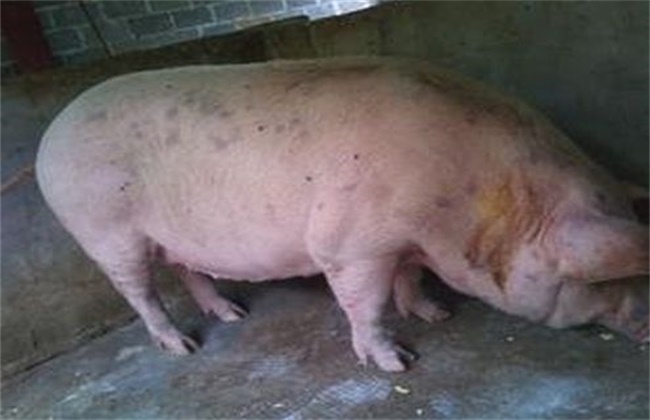Control methods of common parasitic diseases in sheep
Sheep parasitic disease is one of the common diseases in the process of breeding. Unlike other infectious diseases, it will spread on a large scale. It is a chronic disease with strong concealment. Parasites are mainly parasitic on sheep to get nutrition, and in severe cases, they will be accompanied by bacterial and viral infections, resulting in the death of sheep, so what are the common parasitic diseases in sheep? How to prevent and cure it? Let's get to know it.

1. Parasite species
Sheep parasites can be divided into in vitro parasites and in vivo parasites. In vitro parasites mainly affect the skin of sheep, resulting in depilation, tinea and skin decay. On the other hand, the internal parasite is mainly parasitic in the internal organs of sheep, such as spleen and digestive tract. When it occurs, because the symptoms are not obvious and the size is difficult, it will eventually lead to serious complications in sheep and, in serious cases, lead to the death of sheep. It may also be transmitted to human beings, seriously threatening human health.
2. Prevention of parasitic diseases
For sheep to carry out parasite prevention work, first of all, targeted prevention should be carried out according to the characteristics of local parasitic diseases, which is the main method to effectively prevent parasitic diseases. External parasites should be prevented by collecting medicine bath regularly every year, and in vivo parasite prevention is mainly carried out in winter and spring to ensure sheep rejuvenation and safe overwintering. Water source is an active nitrogen fertilizer for parasites, and it is also the main reason for the prevalence of parasitic diseases. It is necessary to ensure clean drinking water and eliminate parasites. In order to ensure the deworming effect, the feces of sheep are treated without pollution, especially those with parasitic diseases, and the parasites and eggs are killed. It is necessary to strengthen feeding, enhance the resistance of sheep, keep the feed clean and hygienic, regularly supplement minerals, vitamins and trace elements, improve disease resistance and reduce the harm of parasitic diseases.
3. Treatment of extracorporeal parasites
Medicine bath is an effective method for the treatment of sheep ectoparasites, which can be divided into pool bath, shower and basin bath according to its different ways, among which the pool bath is the most common one in the sheep farm. After adding the deworming drug that submerged the sheep in the special bath, drive the sheep into it. Stop feeding for at least 8 hours before medicine bath, ensure adequate drinking water for sheep 2 hours before medicine bath, lest sheep only drink insect repellent. After medicine bath, dry the liquid in a designated place and rush back to the enclosure to avoid direct sunlight. 7 hours after feeding, it is important to note that pregnant ewes are prohibited from taking medicine bath.
4. Parasite treatment in vivo
There are many kinds of parasite drugs in the body, so it is necessary to choose appropriate drugs according to the condition of sheep parasites. The common drugs are levamisole, albendazole, avermectin tablets, trichlorfon and so on. Levamisole is mainly used for gastrointestinal nematode disease and can be taken orally or subcutaneously and intramuscularly; bendazole is mainly used for cysticercus, nematode, Fasciola hepatica and tapeworm, which can be treated by oral administration and intramuscular injection; avermectins are mainly used for adults and larvae of nematodes, which can be administered orally and subcutaneously; trichlorfon is a widely used broad-spectrum anthelmintic, which can be taken externally or internally.
The above is an introduction to the prevention and control of common parasitic diseases in sheep. I hope it can help you. If you want to know more about it, please follow us.
Related
- On the eggshell is a badge full of pride. British Poultry Egg Market and Consumer observation
- British study: 72% of Britons are willing to buy native eggs raised by insects
- Guidelines for friendly egg production revised the increase of space in chicken sheds can not be forced to change feathers and lay eggs.
- Risk of delay in customs clearance Australia suspends lobster exports to China
- Pig semen-the Vector of virus Transmission (4)
- Pig semen-the Vector of virus Transmission (3)
- Five common causes of difficult control of classical swine fever in clinic and their countermeasures
- Foot-and-mouth disease is the most effective way to prevent it!
- PED is the number one killer of piglets and has to be guarded against in autumn and winter.
- What is "yellow fat pig"? Have you ever heard the pig collector talk about "yellow fat pig"?



